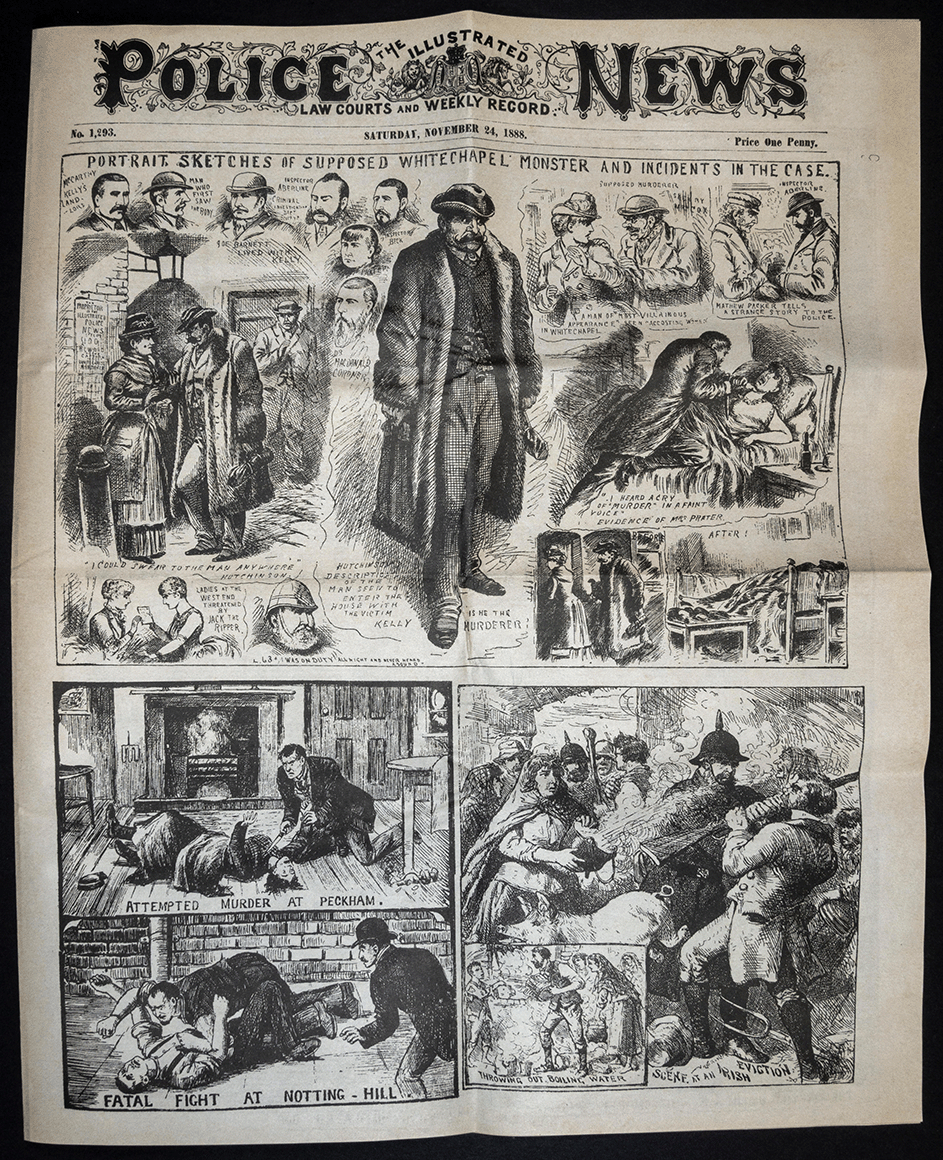Crime and punishment
7.2 Crimes and criminals
Fuelled by lurid stories in national newspapers, the Victorians were very preoccupied with what they perceived as the problems of crime. The popular view prevailed that Britain was a dangerous place; Dickens’ characters – Magwitch in Great Expectations, Fagin in Oliver Twist – resonated with a public who saw the dark dens and alleys of their towns and cities as hives of criminal activity peopled by murderers, thieves and pickpockets. Public executions drew large crowds eager to see the guilty paying their dues to society. But whilst there was an expectation that criminals should be appropriately punished, there was less of a consensus as to why people committed crimes. It was easy to blame an apparently degenerate class who, it was thought, were inherently evil, immoral and corrupt. It was in the Victorian age that the British gradually began to acquire a more realistic understanding of what drove people to crime and a greater degree of sensitivity as to how to deal with those who were often the victims of exploitation.
Group activity: Crimes and criminals
There are three issues to investigate. The first is to understand the extent to which Victorian Britain was beset by crime, and secondly, what therefore were the main causes of crime. The third is to identify who might accurately have been regarded as members of the criminal classes.
Read Royle, pp. 244-249. Then read the article How safe was Victorian London? on the Victorian Web website.
Gain further insights into these questions by reading about the Whitechapel Road Murder (Harriet Lane) on the Victorian Dictionary website and about Liverpool and Merseyside Crimes on the Old Merseyside website.
Prepare some responses to these questions and discuss them with your fellow students in the Crime and punishment forum. You should also reflect on what you have learnt in previous units, using your knowledge to make informed contributions to the discussion.
- Were levels of crime a justifiable cause of concern?
- What were the main causes of crime?
- Is it right to refer to a ‘criminal’ class in Victorian Britain?

